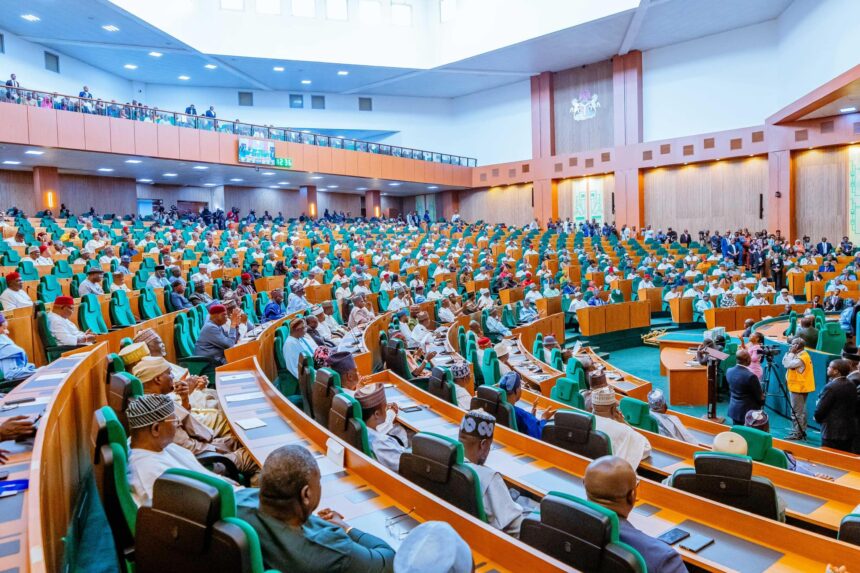The House of Representatives, during its plenary session on Thursday, passed for second reading a bill seeking to address critical issues such as climate change adaptation, drought, desertification, flooding, coastal erosion, dam failures, building collapse, oil spills, road accidents, fire outbreaks, air crashes, and boat mishaps, among others.
The proposed legislation, titled “Bill for an Act to Repeal the National Emergency Management Agency Act, Cap. N34, Laws of the Federation of Nigeria, 2004, and Enact the National Emergency Management Agency Bill and for Related Matters,” was sponsored by the Deputy Speaker, Hon. Benjamin Okezie Kalu, Hon. Babajimi Benson, and five others.
Leading the debate on its general principles, one of the co-sponsors, Hon. Amobi Ogah, lamented that Nigeria is at a crossroads in managing complex emergency and disaster situations and has an urgent need to develop sustainable solutions for millions displaced by conflict, flooding, environmental challenges, dam failures, and building collapses, among other crises.
He stated that emergency response efforts continue to face major operational constraints, including bureaucratic inefficiencies, inadequate funding, a scarcity of technical expertise, difficulties in operational mechanisms, and poor implementation of policies and legislation.
The lawmaker noted that while the existing NEMA Act provides a foundational framework for disaster management, it lacks provisions for addressing key concerns such as climate change adaptation and resilience.
He explained that the bill seeks to establish a framework that tackles these critical issues, including the unintended negative physical, emotional, social, health, and economic impacts on victims. Additionally, it aims to create a self-sustaining alternative funding mechanism beyond the provisions of the existing Act.
Hon. Ogah added that once the bill becomes law, NEMA will be repositioned to strengthen climate adaptation and resilience, aligning with international best practices in complex disaster management.
He stated, “The National Emergency Management Agency (Establishment) Act of 1999 elaborately provided for the establishment, functions, and governance structure of the National Emergency Management Agency (NEMA), making it the central body for disaster management in Nigeria, with state agencies supporting its mandate at the state level.
“While the Act provides a solid foundation for disaster management, it lacks provisions for addressing critical issues such as climate change adaptation and resilience, digital transformation initiatives, drought, desertification, flooding, coastal erosion, dam failure, building collapse, oil spills, road accidents, bomb explosions.
“NEMA will be repositioned through this Bill to ensure climate adaptation and resilience in today’s world of complex disaster management. This reform will also ensure that NEMA’s disaster risk reduction strategy is aligned with international best practices.
“This will also transform NEMA into a stronger coordination authority. It will provide for the establishment of a disaster management institute for the training of NEMA staff and other stakeholders. It will also provide for the registration and coordination of Non-Governmental Organisations (NGOs) and International Non-Governmental Organisations (INGOs) involved in disaster management and support.
“This Bill presents to us a practical step towards transforming the nation’s emergency and disaster management response framework. The emergency and disaster response mechanism contemplated by this Bill is an important legislative response that meets the demands of Section 14(2b) of the Constitution of the Federal Republic of Nigeria, 1999 (as altered), wherein it is enshrined that the primary purpose of government is the security and welfare of the citizen. Every Nigerian deserves to be protected and assisted at times of emergencies and disasters.”
ALSO READ FROM NIGERIAN TRIBUNE






